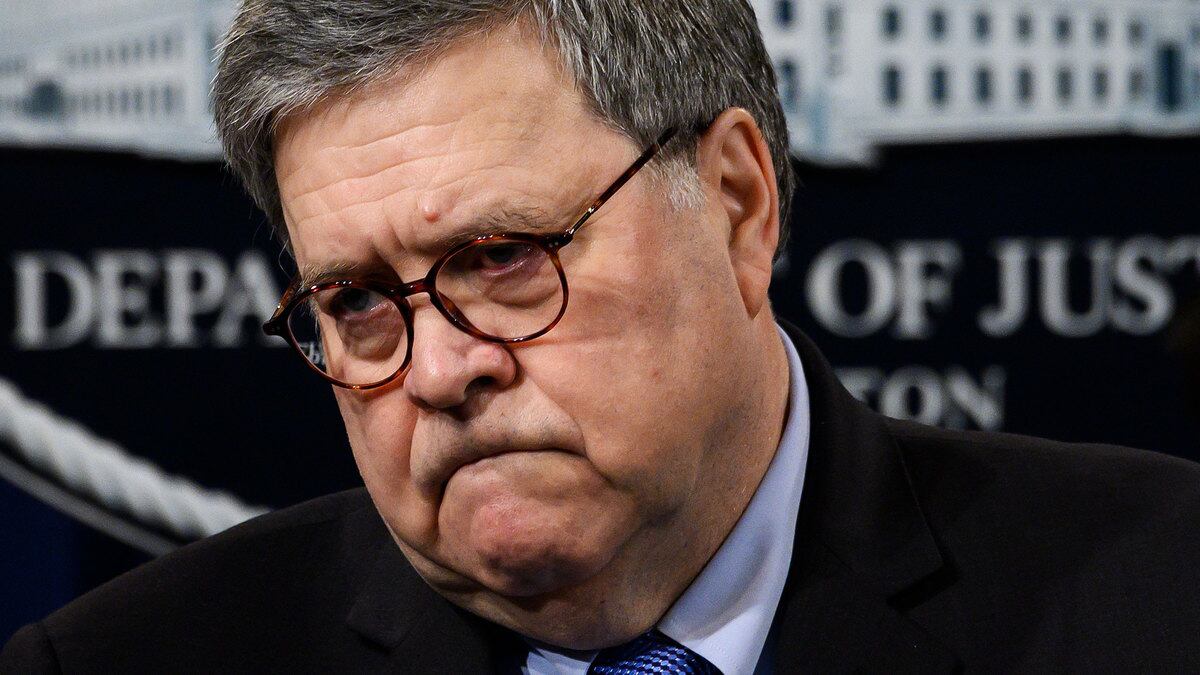William Barr didn’t really help Roger Stone by overriding his own prosecutors — four of whom walked away from the case they’d already won in protest — to recommend a lighter sentence for Trump’s longtime dirty trickster and newly convicted felon Roger Stone. But the attorney general is doing his part to trash the reputation and authority of the Department of Justice he leads, and to make clear that there is no higher authority in Donald Trump’s America than a presidential tweet.
The DOJ is among the most powerful arms of the federal government because of its role in enforcing the nation’s laws But the department’s power is inextricably tied to the respect its lawyers enjoy in the courts. The Solicitor General, whose office argues the federal government’s cases before the Supreme Court, is traditionally referred to as the “Tenth Justice,” because of the deference given to his arguments. The same holds true for line-level federal prosecutors, whose arguments on behalf of the DOJ are given great deference by most federal judges because of the department’s reputation for demanding the highest standards of factual honesty and legal credibility.
That reputation is in tatters now.
The demolition of Justice’s hard-earned authority began in the first month of Trump’s administration, when his original Muslim ban was initially enjoined by a federal judge after humiliated federal prosecutors had to confess in open court that they could not even explain the legal rationale for the policy, or how many individuals who had been swept up in its the chaotic implementation.
The embarrassments have piled up since. Last summer, Chief Justice Roberts ruled against Trump administration’s attempt to add a citizenship question to the census, largely because of the mendacious conduct of the DOJ. Roberts harshly criticized the lower court’s “second guessing of the administration’s policy judgments.” But, as Roberts acknowledged, the uncontroverted evidence demonstrated that the Trump administration had engaged in an effort to support a “contrived” rationale for the government’s action, based on a claimed interest in enforcing the Voting Rights Act, a statute that is hardly near and dear to Trump. In light of the mendacity of the DOJ, Roberts was effectively compelled to rule against the government.
Barr’s cavalier attitude toward the DOJ’s status as the guardian of the nation’s laws is also reflected in his embrace of efforts to void the Affordable Care Act. Throughout Republican and Democratic Administrations, attorneys general have recognized that the DOJ has an obligation to argue for the validity of any arguably constitutional law, even laws that the current president may not like. This obligation derives from the DOJ’s status, first and foremost, as the enforcer and defender of the nation’s laws. Under Barr, however, the DOJ chose to join right-wing state attorneys general in a weak challenge to the constitutionality of the entire ACA in the wake of Congress’ termination of the enforcement of the individual mandate, in patent service of the President’s political agenda.
Barr's DOJ has also undermined the reputation of the Office of Legal Counsel, the previously highly respected entity charged with issuing carefully reasoned, authoritative opinions on important legal issues. Under Barr, the OLC has become a one-stop-shop for instant justifications of the most outrageously illegal actions by the DOJ and the President. For example, the OLC issued a shoddily reasoned opinion justifying the Defense Secretary's initial refusal to turn over the Ukraine whistleblower's report to Congress, in accordance with plain statutory command. More recently, the OLC issued a similarly weak opinion purporting to justify the President's defiance of congressional impeachment subpoenas on the eve of the submission of Trump's impeachment trial brief
Of course, Barr publicly, and notoriously, advertised his willingness to sacrifice the DOJ’s credibility in the service of Trump when he wrote a letter to Congress simply lying about the content and reasoning of the Mueller Report as part of what turned out to be a campaign to frustrate any congressional effort to hold Trump to account for the misconduct the Special Counsel uncovered. Barr later required the House to go to court in an effort to obtain access to potentially critical evidence underlying the report.
Which returns us to Barr’s decision Tuesday to second-guess the sentencing recommendation of his own United States Attorney and line prosecutors—yet another step in the attorney general’s ruination of the department he leads.
Stone was convicted for obstructing Mueller’s investigation into the Trump campaign’s relationship with Russia, including his investigation of the actions of Trump himself. On Monday night, the District of Columbia United States Attorney’s Office submission a court brief arguing that Stone should receive a sentence of between 7 ¼ and 9 years in prison, consistent with the range suggested by federal sentencing guidelines. Like many such positions taken in high-profile cases, the sentencing recommendation was reportedly reviewed, and substantially debated, within the office. Ultimately, the interim U.S. attorney Timothy Shea, himself a former close advisor to Barr, signed off on the recommendation, which reflected the gravity of Stone’s criminal conduct.
But early this morning Trump issued a tweet declaring that the U.S. attorney's sentencing recommendation was “horrible and very unfair” and stating that he “[c]annot allow this miscarriage of justice.” Later in the day, a senior Justice official told the Daily Beast that Main Justice had been “shocked” by a sentencing recommendation they found “extreme and excessive and grossly disproportionate to Stone’s offenses.”
A spokesperson insisted the coming decision to override Shea — whose office had already mysteriously softened its position on the sentencing of former Trump National Security Advisor Michael Flynn — was totally unrelated to Trump’s tweet, a ridiculous claim further exposed by the withdrawal of all four prosecutors on Stone’s case, with one of them resigning from the DOJ altogether.
Main Justice sent that new filing Tuesday evening, with no new sentencing recommendation but a declaration that “The prior filing submitted by the United States on February 10, 2020 (Gov. Sent. Memo. ECF No. 279) does not accurately reflect the Department of Justice’s position on what would be a reasonable sentence in this matter.”
What changed?
Barr’s decision to overrule his own prosecutors isn’t likely to change the views of the presiding judge, Amy Berman Jackson, an experienced jurist and former prosecutor. But bowing to Trump’s demand will further call into question the probity and fairness of Justice’s own lawyers every time that they appear in a courtroom to argue for the purportedly fair and just application of the nation's laws to defendants charged with breaking them.




